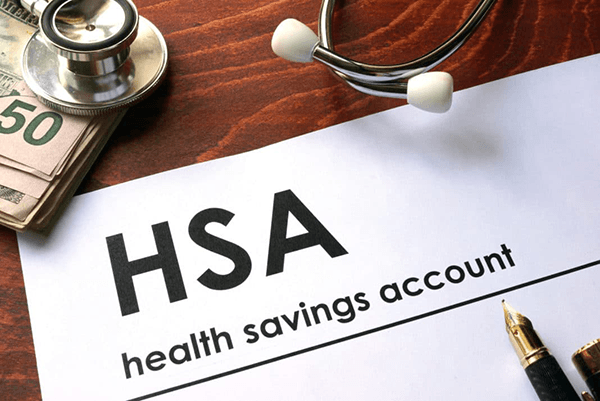By Michael Fidlow
When Health Savings Accounts (HSA’s) were passed into law in 2004, the major concern for employees with chronic illness was the issue of having no coverage – until the high deductible was met – for their care. The prescriptions, durable medical equipment, along with the testing in the office and lab, were subject to a deductible. Employees were on the hook for a considerable amount of their own hard-earned dollars before any reimbursement was covered.
 But with new legislation recently passed by the Department of Treasury, there is optimism that HSAs will work for the chronically ill.
But with new legislation recently passed by the Department of Treasury, there is optimism that HSAs will work for the chronically ill.
Until now, this reality shed a bad light on the HSA concept for this population of employees because they would not have opportunity to accumulate money in their account for medical care in the future – for times when accidents or unknown medical procedures would unexpectedly come about. Their need to have to pay right away for chronic illness medications and tests would drain their accounts, assuming they were able to build it up in the first place.
The point of the HSA is to increase the plans’ deductible, lowering the cost of medical premiums, resulting in savings from the employees’ contributions in order to pay for their own healthcare expenses. This lower contribution produces immediate savings to the employee. The employer’s expectation is the employee will then take this excess money to fund, pre-tax, their HSA. This creates an opportunity for the employee to cover the plans high deductible if something major happened to them or their family member.
Without proper explanation of these types of plans, we have seen employees leave them behind. Some enjoyed the increase in their paycheck and sought other ways to spend their additional dollars. Some concluded they were healthy, invincible, and – as a result – would never have a need in the future for healthcare funds. Ones with chronic conditions, however, knew they were going to have significant claims, were cognizant of placing their savings into the accounts for the pre-tax advantage, but realized that these funds would be short-lived because they would have immediate expenses they would incur.
The Internal Revenue Service in July added care for a range of chronic conditions to the list of preventive care benefits that may be provided by a high deductible health plan (HDHP). Notice 2019-45 (PDF), posted today on IRS.gov, lists the new types of medical care that may be treated as preventive care for this purpose.
Individuals covered by an HDHP generally may establish and deduct contributions to a Health Savings Account (HSA) as long as they have no disqualifying health coverage. To qualify as a high deductible health plan, an HDHP generally may not provide benefits for any year until the minimum deductible for that year is satisfied. However, an HDHP is not required to have a deductible for preventive care (as defined for purposes of the HDHP/HSA rules).
The Treasury Department and the IRS, in consultation with the Department of Health and Human Services, have determined that certain medical care services received and items purchased, including prescription drugs, for certain chronic conditions should be classified as preventive care for someone with that chronic condition.
With the recent passage by the Department of Treasury, we are now addressing this population of employees. This ruling will cover medication and testing, below the deductible, for chronic illness which includes diabetes, asthma, depression and heart failure. We can only hope this opens the door to covering more benefits below the deductible for these types of high deductible plans. The key to ensuring this comes to fruition is now prompting the health insurance carriers to follow suit by implementing these allowable changes into their coverage.
The list for coverage below the deductible includes the following:
- ACE inhibitor drugs for people with heart failure, diabetes and/or coronary artery disease.
- Bone-strengthening medications for people with osteoporosis or osteopenia.
- Beta-blocker drugs for people with heart failure and/or coronary artery disease
- Blood pressure monitors for people with hypertension
- Inhalers and peak flow meters for people with asthma
- Insulin and other medicines to lower the blood sugar of people with diabetes
- Eye screening, blood sugar monitors and long-term blood sugar testing for people with diabetes
- Tests for blood clotting ability in people with liver disease or bleeding disorders
- Tests of LDL cholesterol levels in people with heart disease
- Antidepressants called SSRIs for people with depression
- Statin medications for people with heart disease and/or diabetes
As a broker, I continue to see a push for the improvement of these pre-tax accounts, whether it is a Health Savings Account, a Health Reimbursement Account and/or a Flexible Spending Account. The rulings are strengthening the advantages for companies to offer these in some combination to their employees. Our next step is to continue to see progress in the transparency of these costs as, I believe, it is the last cog in the wheel that helps to lower consumer spending. When we must pay for our claims it is paramount that competition is abundant, that we have pricing from providers available to us, and that we are empowered to negotiate for our cost of care. Every other big-ticket item we purchase provides that opportunity for us – why should it not be in healthcare!
Michael Fidlow is president of Strategic Employer Planning Group, LLC a group health benefits consulting firm for small companies in NY/NJ that employ 2-49 employees.












